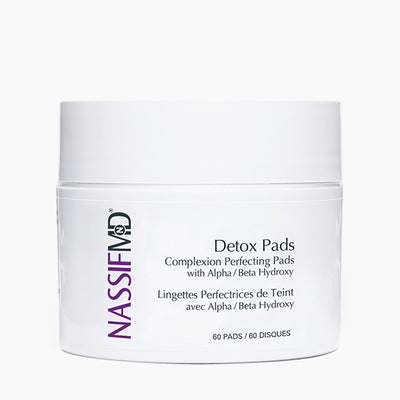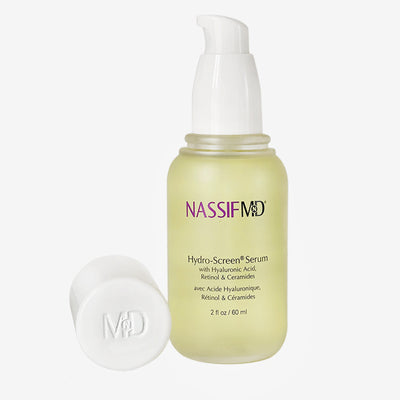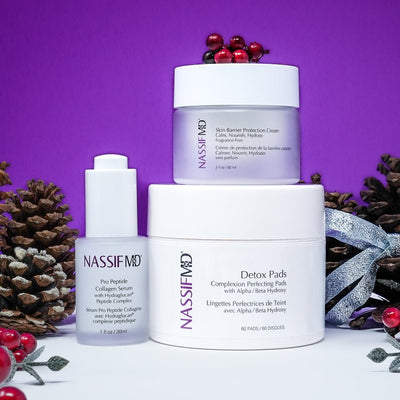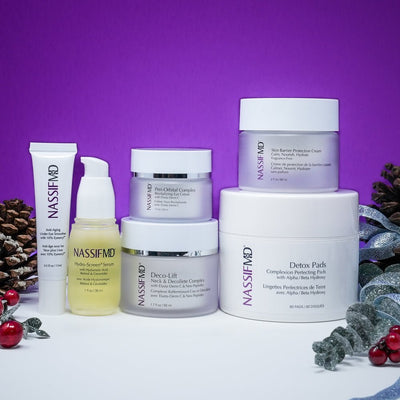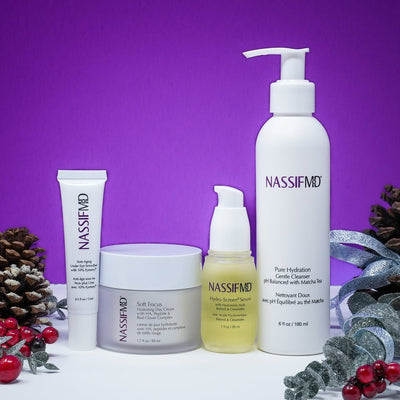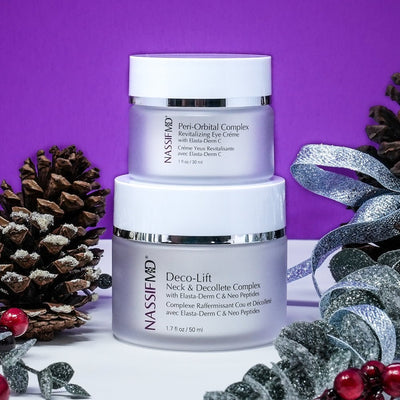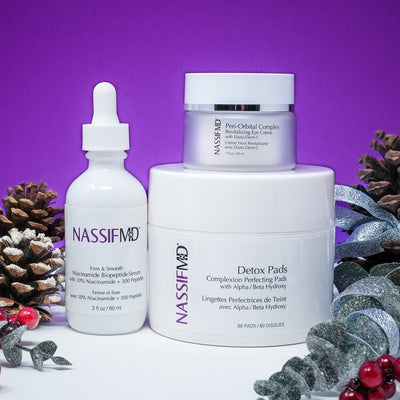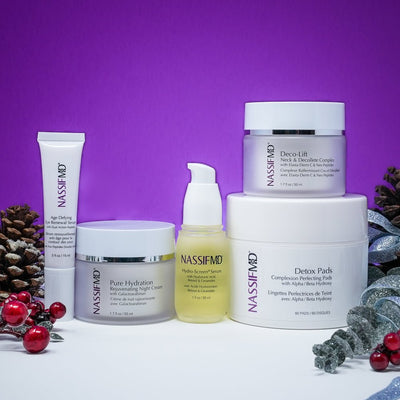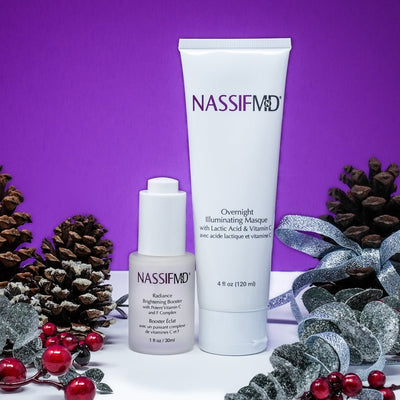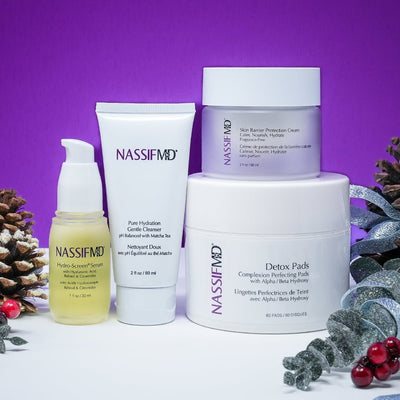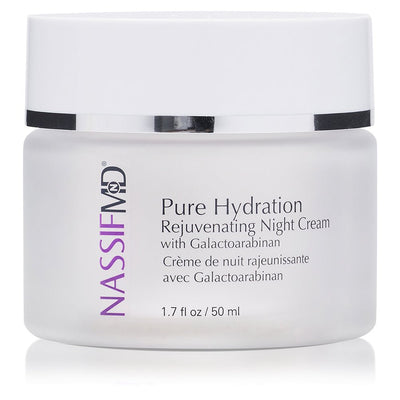Are Hair Supplements All They’re Cracked Up to Be?
Hair health, like skin, is essential for confidence and a positive self-image. It can feel alarming when the hair changes with age or illness, becoming finer, thinner, and greyer. No matter your age, there are several possible root causes for hair loss. Hair loss can be caused by autoimmunity, medication use, undereating, genetics, stress, and hormone changes (like menopause.)
A common cause of hair loss is also nutrient deficiencies. Low levels of vitamins for hair growth result in fine, brittle, and shedding hair. Repleting these nutrients, often with supplements, can improve hair growth.
Today’s article will explore what vitamins are good for hair growth, focusing on the benefits of biotin. Keep reading to learn more about:
- The best vitamins for hair growth
- Biotin and what is biotin good for?
- NassifMD® Biotin Gummies
- Hair growth supplements – do they work?
Best Nutrients in Hair Health Supplements
There are many hair vitamins and supplements for hair growth on the market, all with claims of improved thickness, texture, and shine. Hair supplements are undoubtedly popular, but do they work? Let’s look at some of the key nutrients for hair health and why deficiencies in these nutrients may impact how your hair looks, feels, and grows.
ProteinKeratin is the primary protein in hair and nails; dietary protein directly influences your hair. Protein-rich foods, like fish, eggs, meat, and beans, help provide the building blocks for your hair. Keratin is a popular ingredient in many hair treatments. Additionally, collagen supplementation may reduce hair loss and promote new growth.
Vitamin AVitamin A is a fat-soluble vitamin required for skin and hair health. Known as a hair vitamin, too little vitamin A, as well as too much, can negatively affect hair growth or promote hair loss. Vitamin A participates in keratin production and may help regulate hair follicle stem cells and the natural hair cycle.
Dietary sources of vitamin A include eggs, whole milk, liver, and fatty fish. Plant foods high in beta-carotene, like carrots and sweet potatoes also contribute to vitamin A levels in the body. Retinol, a form of vitamin A, is an effective skincare ingredient found in some topical hair formulas.
Vitamin B12Vitamin B12 and all the B vitamins (B vitamin complex) are water-soluble vitamins involved in energy metabolism, red blood cell formation, DNA expression, and more. Deficiencies in vitamin B2 (riboflavin), vitamin B7 (biotin), vitamin B9 (folate), and vitamin B12 are associated with hair loss. (More on biotin benefits below.)
Vitamin B12 is found in animal-derived foods and is a common deficiency for those avoiding animal foods. Additionally, B12 levels may be lower in older adults and those taking specific medications (like proton pump inhibitors) that affect B12 absorption.
Vitamin CVitamin C is another water-soluble hair vitamin that you must obtain from a diet. Plant foods, including citrus fruits, tomatoes, bell peppers, broccoli, and berries, are good sources.
Vitamin C is concentrated in the skin and provides antioxidant protection to skin cells and hair follicles. It’s also involved in collagen synthesis, which supports hair growth. Additionally, vitamin C supports iron absorption; iron is another hair growth supplement.
Vitamin DVitamin D is a fat-soluble vitamin made in the body and activated in the skin. It’s hard to get enough vitamin D from the diet alone. As we live less outdoors and protect our skin with sunscreen, we may not produce adequate amounts of vitamin D and supplementation may be beneficial.
Low vitamin D affects the growth of keratinocytes (cells that produce keratin) in the hair follicle. Extreme vitamin D deficiency (rickets) involves hair loss on the head and body.
Vitamin ELike vitamin D, vitamin E is fat-soluble. Like vitamin C, vitamin E plays important antioxidant roles in protecting cells from oxidative damage and is critical for immune health. Considering that hair loss can be genetic or immune system-related, vitamin E can be protective.
Sunflower seeds, almonds, hazelnuts, pine nuts, Brazil nuts, and other nuts and seeds (and their oils) are the highest sources of dietary vitamin E.
Biotin (B7)Biotin supplements are very popular and effective, and biotin is often found in the best supplements for hair growth. You get biotin from food and your gut bacteria synthesize it too. However, deficiencies are still possible because of genetic conditions, poor absorption, medication use, eating raw eggs, and other causes. Biotin in the diet is bound up in protein, requiring good protein digestion for release.
Biotin deficiency can affect the hair, skin, and nails, and symptoms include hair loss. Biotin supplements are effective for reversing biotin deficiency.
IronIron deficiency is another nutrient deficiency that can affect the hair. It’s the most common deficiency worldwide, especially in women and children, and is associated with hair loss. The primary cause of iron deficiency is inadequate iron intake, but there can be other root causes as well, such as blood loss or poor iron absorption.
Red meat, shellfish, poultry, liver, leafy greens, and legumes are good sources of iron. As mentioned, vitamin C helps improve iron absorption.
SeleniumSelenium is another mineral that is critical for hair health. Selenium is necessary for thyroid health (low thyroid hormones are associated with hair loss) and glutathione production (glutathione is the primary antioxidant in the body.) Both too little selenium in the diet and selenium toxicity (from too much supplementation) can contribute to hair changes.
Dietary sources of selenium include Brazil nuts, fish, seafood, meat, dairy products, eggs, and whole grains.
ZincZinc is another popular nutrient (mineral) in hair growth supplements and is naturally found in dietary sources like fish, shellfish, meat, and seeds.
Zinc deficiency often includes alopecia (hair loss) and can occur from poor dietary intake, digestive diseases or surgeries, alcoholism, and other causes. Repleting zinc levels can improve hair growth in cases of zinc deficiency,
Hair Loss Study Summary: Biotin Deficiency and Hair Loss
Biotin for hair growth is a popular topic and is considered one of the top hair vitamins.
What does biotin do? Biotin is an essential cofactor for metabolism, making it essential for strong and healthy hair, skin, and nails.
In a 2016 study, researchers found biotin deficiency in 38% of women with hair loss, which is significant considering all the other nutrient deficiencies and other root causes that can help explain hair loss. Of the 38%, only 11% had risk factors for biotin deficiency, suggesting this nutrient deficiency is more widespread than expected.
In cases of biotin deficiency, biotin is the best hair growth vitamin to take in supplemental form.
Biotin GummiesNassifMD® Biotin Gummies are an easy and effective way to increase biotin levels and support hair growth, nail strength, and skin health. Each serving of two strawberry gummies contains 10,000 mcg of biotin, as much as most hair growth pills.
Biotin side effects are rare, and biotin gummies are well tolerated. However, biotin supplements can interfere with some lab tests, so talk to your doctor to find out if you need to stop biotin supplements before a blood draw.
Do Hair Supplements Really Work?
Biotin supplements and other vitamins for hair loss are popular, but do vitamins really work? They can work exceptionally well when hair loss is related to a specific nutrient deficiency. If you aren’t sure a nutrient deficiency is the root cause of your hair loss, there is little risk to trying a hair supplement like NassifMD® Biotin Gummies to see if it helps. Although, it’s always best to talk with your healthcare provider about supplements.
It's also important to remember that growing hair takes time. As much as you want a quick fix for hair issues, hair is slow to regenerate and grow. Give hair supplements at least three months and assess for new hair growth and decreased shedding.
Look for Key Hair NutrientsWhen choosing natural supplements for hair growth, look for a quality product from a trusted brand like NassifMD® facial plastic surgeon skincare. In many cases, biotin alone is sufficient, but you can also add a multivitamin/mineral supplement and collagen to cover the other important hair nutrients. As a bonus, these supplements will support healthy skin from the inside out.
The best vitamins for hair growth are the ones your body needs. Start with a well-balanced diet and supplement for strong, thick, shiny hair.
References
- An, S. Y., Kim, H. S., Kim, S. Y., Van, S. Y., Kim, H. J., Lee, J. H., Han, S. W., Kwon, I. K., Lee, C. K., Do, S. H., & Hwang, Y. S. (2022). Keratin-mediated hair growth and its underlying biological mechanism.Communications biology, 5(1), 1270.
- Hwang, S. B., Park, H. J., & Lee, B. H. (2022). Hair-Growth-Promoting Effects of the Fish Collagen Peptide in Human Dermal Papilla Cells and C57BL/6 Mice Modulating Wnt/β-Catenin and BMP Signaling Pathways.International journal of molecular sciences, 23(19), 11904.
- VanBuren, C. A., & Everts, H. B. (2022). Vitamin A in Skin and Hair: An Update.Nutrients, 14(14), 2952.
- Almohanna, H. M., Ahmed, A. A., Tsatalis, J. P., & Tosti, A. (2019). The Role of Vitamins and Minerals in Hair Loss: A Review.Dermatology and therapy, 9(1), 51–70.
- Trüeb R. M. (2016). Serum Biotin Levels in Women Complaining of Hair Loss.International journal of trichology, 8(2), 73–77.


